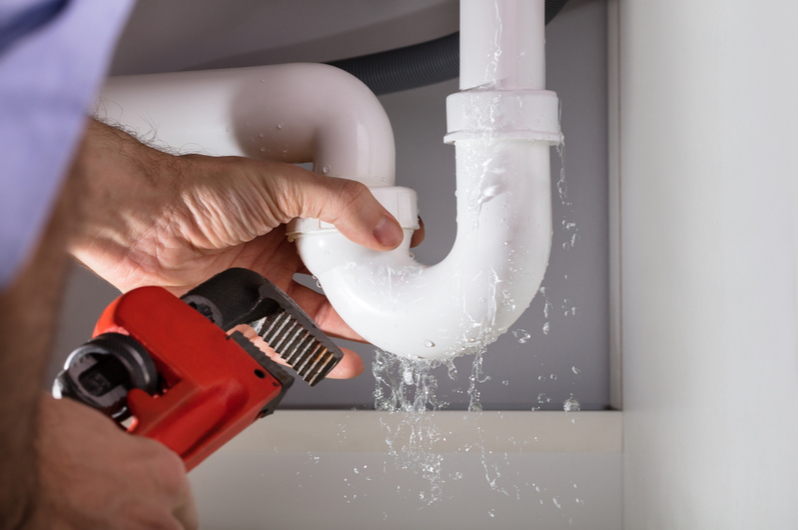There are many benefits to becoming a plumber. Whether you live in a small town or a large city, there are always pipes and drains to work on. As a plumber, you have a great deal of control over your schedule.
Some plumbers choose to work with a company, while others are independent agents. If you are interested in a leadership position, you can even start your own plumbing business. If you do not like staying in an office all day, plumbing is an excellent career, since you constantly travel between different businesses and homes, dealing with a variety of problems.
Another benefit is the training to become a plumber is much more practical than other careers. You do not need to spend years in college earning a degree, potentially falling into student debt. The path to becoming a plumber is largely based around acquiring experience through an apprenticeship program. The average wage for plumbers, according to a 2019 survey from the U.S. Bureau of Labor Statistics, was a little over $55,000, with the more experienced plumbers earning closer to $90,000 to $95,000.

What do Plumbers do?
Plumbers have multiple responsibilities. They are most famously associated with installing and repairing pipes, but they also work with any other fixtures that involve liquids or gasses in both homes and commercial buildings. Some plumbers also work in factory settings to address malfunctioning systems. Plumbers are often called in for consultants as well when new buildings are being designed. These types of plumbers must be comfortable working with blueprints, anticipating what materials are needed and coming up with cost estimates.
Education Requirements
To become a plumber, you need at least a high school diploma or GED. There are several types of associate and bachelor degrees available for plumbers, but these are mostly for specialized positions and not required for getting started. If you do pursue a degree, you have a greater chance of earning a higher starting wage, and you may be eligible for advanced positions. However, even if you do not get a degree, you can climb through the ranks and learn advanced plumbing through on the job training.
In addition to college degrees, there are also vocational schools available. These schools focus on teaching the basics to become a plumber, taking significantly shorter than a college degree. The exact length of the classes vary based on where you attend, but most courses are completed within five to six months.
Becoming an Apprentice
For the majority of plumbers, the best training comes through an apprenticeship program. Most apprenticeship programs last for four or five years. You can sign up for an apprenticeship program through most trade schools, but many businesses and union chapters also cater to new apprentices. In recent years, there has been an increase in the number of employers who, not only offer an apprentice program, but also cover the costs of additional training, if you agree to work for the company for a set amount of time.
The first step to becoming a plumber involves taking an aptitude exam. During the aptitude exam, you demonstrate you know the basic skills necessary to be a plumber. If you go to vocational schools, there are practice exams available. Your exam is reviewed by a panel of established plumbers in your area. If you pass, the next step is the interview process.
If the interview goes well, you enter the program and are appointed a journeymen plumber to work under. Apprenticeship is similar to an internship, but one major difference is you get paid as an apprentice. As of writing, apprentices earn 45 percent of the minimum salary. After a year, this increases to 50 percent. Each year, you earn an additional 10 percent, up to a maximum of 80 percent.
During the first four years, you attend classes one or two times a week, typically in the evenings. These classes are taught either at a nearby technical school, or from a trade union instructor. After a period of four years, you can take your certification exam to become a journeyman plumber. Depending on where you live, you may need additional licensing or certification before your apprenticeship ends. The exact process varies depending on where you live. Your plumbing classes will go over the exact process, and help you prepare for any additional tests in your state.
Advancing as a Plumber
Once you complete your apprentice and get the necessary licensing or certification, you are considered a journeymen plumber. As a journeymen plumber, you are allowed to work independently. Many journeymen plumber continue to work alongside the plumber who trained them. Some journeymen plumbers seek additional training to specialize in a chosen field. As you build up experience, you can advance to the final title, master plumber. Master plumbers operate their own businesses and oversee the training of new plumbers. The steps to become a master plumber change depending where you live. In addition to working for a number of years, you must also undergo additional training and pass more examinations.